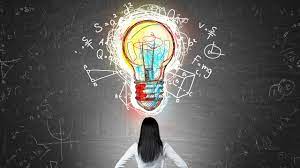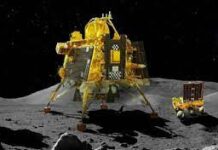Looking at the science we have around us, did it ever come to mind what it might be in the future? Will it benefit us or do the exact opposite or just stay in the same stage? Science is a systematic and evidence-based approach to understanding the natural world.The science of the future refers to the study and exploration of emerging technologies, scientific discoveries, and innovations that are expected to shape our future. It encompasses a wide range of fields and disciplines that aim to push the boundaries of knowledge and improve our understanding of the world.
Over the years, scientists have had many breakthroughs in various technological fields, such as artificial intelligence(AI), robotics, nanotechnology, biotechnology, and quantum computing. These advancements have the potential to revolutionize industries, enhance efficiency, and improve the quality of life. To take note, AI can automate routine and repetitive tasks, freeing up human time and resources. Additionally, AI-powered robots and machines can perform tasks with speed and precision, improving efficiency and productivity. Ai algorithms can personalize content recommendations on streaming platforms and provide personalized health care suggestions based on our specific needs.
Science continues to advance our understanding of diseases, treatments, and preventive measures. Through ,epically research, scientists can develop new drugs, therapies, and diagnostic techniques that improve healthcare outcomes. Furthermore, advancements in biotechnology and genetics enable personalized medicine, tailored to an individuals specific needs and genetic makeup.
Following this, science plays a crucial role in cancer treatment by contributing to various aspects of the disease, from understanding its causes to develop effective treatments. Through scientific research, we gain a deeper understanding of the causes and mechanisms behind cancer development. It enables the development of advanced screening methods to detect cancer at its earliest stages. By analyzing a patient’s genetic profile and tumor characteristics, scientists can tailor treatment plans to individual patients. This allows for more precise and effective therapies, minimizing side effects and improving patient outcomes.
Advances in science and technology have contributed greatly to sustainability of our environment. Scientists study vast aspects of sustainability such as renewable energy sources, waste management, and even conservation strategies. For instance, the renewable energy sector presents opportunities for economic growth and job creation. Investing in renewable energy infrastructure and technologies, stimulate local economies, attracts investment, and create jobs in manufacturing. This helps to foster sustainable economies development and reduce unemployment.
In recent years, renewable energy costs have been declining rapidly. As technologies improve and economies of scale are achieved, renewable energy is becoming increasingly cost competitive with traditional energy sources. By embracing renewable energy, we can potentially reduce energy costs over time, making energy more affordable and accessible to individuals and communities.
Renewable energy sources have a minimal environmental footprint compared to fossil fuels. Solar and wind power, for example, do not produce air pollutants or greenhouse gas emissions during operation. They also have a lower impact on water resources compared to thermal power plants. By transitioning to renewable energy, we can improve air quality, protect ecosystems, and conserve water resources.
Science can also contribute to improving agricultural practices and ensuring food security for the growing global population. Through genetic engineering and biotechnology, scientists can develop crops that are more resistant to pests, diseases, and harsh environmental conditions. This can increase crop yields and help address food shortages. Moreover, precision agriculture techniques, like remote sensing and data analytics, can optimize resource usage and reduce environmental impacts. This includes using sensors, satellites, and data analytics so that farmers can monitor and manage their crops better.
Promoting precision farming allows for accurate application of water, fertilizers, and pesticides, reducing waste and improving productivity. This leads to reduced costs and less negative impact on the environment. To add, by implementing practices like crop rotation, cover cropping, and integrated pest management, farmers can improve soil fertility, reduce erosion as well as support beneficial insect populations.
In addition to all this, science enables the dissemination of knowledge and best practices to farmers through agricultural education and extension programs. Researchers and agricultural experts can conduct studies and experiments to discover and share new technologies and techniques with farmers. This helps farmers stay updated on the latest advancements and adopt innovative practices that can improve their agricultural productivity and sustainability.
Another aspect of science involves the exploration and colonization of space. Scientists and space agencies are actively researching ways to expand human presence beyond Earth, with missions to Mars and establishment of lunar colonies being key objectives. This field of science seeks to unlock the mysteries of the universe and potentially allow the human species to inhabit other celestial bodies. Studying other planets and celestial bodies can provide insights into our own planets history and potentially lead to new resources and technologies. This also means space exploration can expand our understanding of the universe and inspire future generations of scientists and explorers.
The future holds immense potential for advancements and discoveries that will shape our world. Science will continue to drive technological innovations that will transform various industries and improve our daily lives. Fields such as nanotechnology and astronomy will advance further, leading to breakthroughs. We can expect the development of more advanced medical treatments, renewable energy solutions, smart devices and efficient transport systems.
Scientists are constantly pushing the boundaries of knowledge about the universe. In the future, advancements in space exploration and astronomy will enable us gain immense discoveries of the mysteries of the cosmos, using improved telescopes and space missions.
Addressing the challenges posed by climate change and global warming will hopefully be defeated in the future with the help of carbon capture and climate modeling to inform policy decisions. As science progresses, ethical considerations will become essential for society as to have potential risks and societal impacts.
Nevertheless, science will continue to amaze us with groundbreaking news in the future. It will go on, unraveling the complexities of the universe and develop our world in unimaginable ways. The science of the future holds the promise of remarkable technological innovation, deeper understanding of the universe, solutions to climate change, agricultural practices and the much needed advancement in healthcare. The potential for scientific progress is vast, and it will continue to shape our world into ways we can only begin to imagine.
By: Mariyam Shausun Zubair
Write and Win: Participate in Creative writing Contest & International Essay Contest and win fabulous prizes.
















